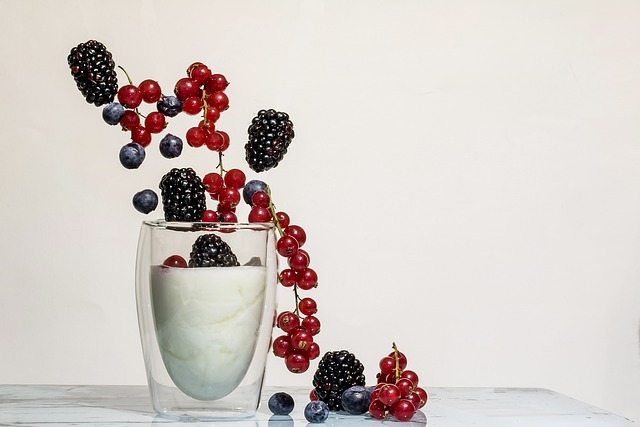The Surprising Benefits of Probiotics for Skin Health and Beauty
In recent years, probiotics have become increasingly popular in the world of skincare and beauty. These beneficial bacteria, often associated with improving gut health, are now being recognized for their surprising benefits for skin health and beauty. From treating acne to improving skin hydration, the role of probiotics in skincare is truly remarkable.
What Are Probiotics?
Probiotics are live microorganisms that provide health benefits when consumed or applied topically. The most common types of probiotics are Lactobacillus and Bifidobacterium, which are commonly found in fermented foods like yogurt and sauerkraut. These bacteria help maintain the delicate balance of our gut flora, but their benefits extend beyond our digestive system.
The Gut-Skin Connection
It may seem surprising, but our gut and our skin have a strong connection. The health of our gut microbiome can impact the health and appearance of our skin. An imbalance in gut bacteria can contribute to various skin issues, including acne, eczema, and rosacea. By promoting a healthy gut, probiotics can significantly improve the condition of our skin.
Probiotics for Acne-Prone Skin
Acne is a common skin concern that affects people of all ages. It occurs when hair follicles become clogged with oil and dead skin cells, leading to the development of pimples and blemishes. Probiotics have shown promising results in reducing acne and improving the overall complexion.
Studies have found that certain strains of probiotics, such as Lactobacillus acidophilus and Lactobacillus rhamnosus, can inhibit the growth of acne-causing bacteria. By reducing the number of harmful bacteria on the skin’s surface, probiotics help prevent breakouts and promote clearer skin.
Probiotics for Eczema and Sensitive Skin
Eczema is a chronic condition characterized by dry, itchy, and inflamed skin. It is often linked to an impaired skin barrier function and an overactive immune response. Probiotics, when applied topically or taken orally, have shown potential in reducing eczema symptoms and improving skin health.
Probiotics work by strengthening the skin’s natural barrier function and reducing inflammation. They also help modulate the immune system’s response, preventing excessive reactions that contribute to eczema flare-ups. Regular use of probiotic skincare products or incorporating probiotics into the diet can provide relief to those with eczema or sensitive skin.
Probiotics for Hydration and Anti-Aging
A well-hydrated skin is supple, plump, and youthful-looking. Probiotics play a role in improving skin hydration by restoring the skin’s moisture balance. They encourage the production of ceramides, which are essential for maintaining healthy skin barrier function.
Furthermore, probiotics have been found to stimulate collagen and elastin production, two proteins that are crucial for maintaining skin firmness and elasticity. By incorporating probiotics into your skincare regimen, you can help slow down the aging process and achieve a more youthful complexion.
Choosing and Using Probiotic Skincare Products
When selecting probiotic skincare products, look for those that contain live and active cultures of beneficial bacteria. These products should be formulated to deliver the probiotics effectively to the skin.
It’s also worth noting that consistency is key when it comes to using probiotics for skin health. Incorporating probiotic-rich foods into your diet and using probiotic skincare products regularly can help maximize their benefits.
Conclusion
Probiotics offer a range of surprising benefits for skin health and beauty. From fighting acne to alleviating eczema and improving hydration, these beneficial bacteria have the potential to transform your skin. By considering the connection between your gut and your skin, you can effectively harness the power of probiotics and achieve a healthier, more radiant complexion.







